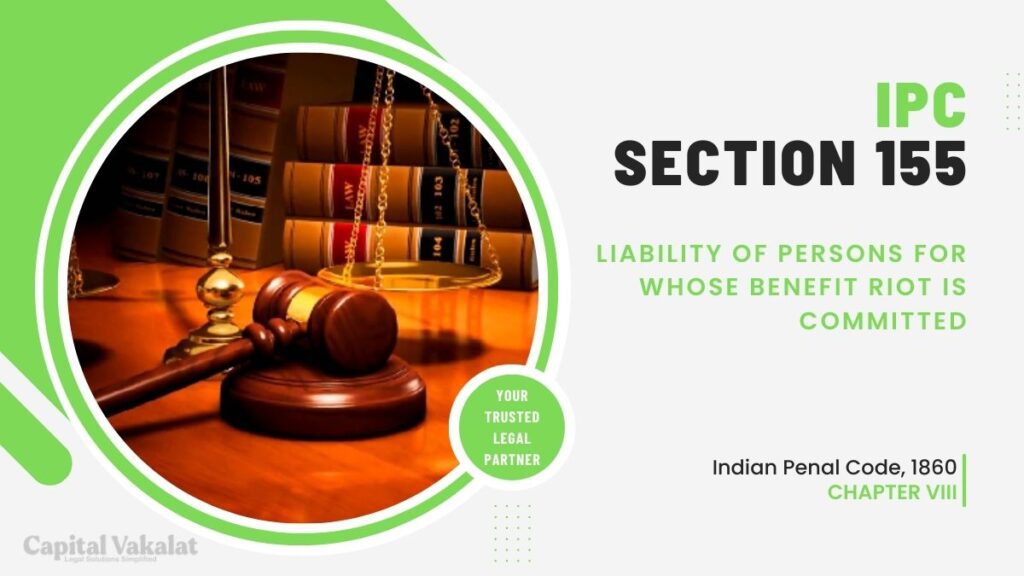In the Indian Penal Code (IPC), Section 155 deals with the liability of individuals for the benefit of whom a riot is committed. Riots are events marked by violence, public disturbance, and chaos. This legal provision is aimed at holding those accountable who might not directly participate in the riot but still benefit from it.

This article will comprehensively explore Section 155 IPC and its implications.
Understanding Section 155 IPC
Section 155 IPC is an important legal provision that addresses the responsibility of persons for whose benefit a riot takes place. It ensures that even if someone is not directly involved in the violent activities during a riot, they can still be held accountable if it can be established that the riot served their interests.
The Concept of Riot
To understand Section 155 IPC, it’s crucial to grasp the concept of a riot. A riot is a tumultuous event where a group of people engage in violence, destruction of property, or other illegal activities that disrupt public order. Riots are a menace to society, and the law seeks to curb them.
Liability of Persons
Section 155 IPC deals with the liability of individuals who may not have actively participated in a riot but have benefited from it. This implies that if a person indirectly gains from the riot, they can be held legally responsible.
Establishing Beneficial Intent
To establish liability under Section 155, the court needs to prove that the person had a beneficial intent in the occurrence of the riot. This is a critical element, and evidence of such intent is pivotal in any legal proceedings.
Key Elements of Section 155
There are key elements to consider when applying Section 155 IPC. These include the nature of the riot, the role of the person benefiting from it, and their intent. A clear understanding of these elements is vital for proper legal interpretation.
Offenses Covered
Section 155 IPC covers various offenses related to riots and public disorder. It is essential to know which specific offenses fall under this section to determine who can be held liable.
Proving Liability
Proving liability under Section 155 is a complex task that involves extensive legal procedures and evidence. Understanding how this process works is crucial for both the prosecution and defense.
Cases and Precedents
This section will discuss landmark cases and legal precedents that have shaped the interpretation and application of Section 155 IPC over the years. Real-world examples help in understanding the practical implications of this legal provision.
Challenges and Controversies
Section 155 IPC has faced challenges and controversies in its application. Some argue it is too broad, while others believe it is necessary to maintain law and order. This section delves into the debates surrounding this legal provision.
Conclusion
In conclusion, Section 155 IPC is a significant legal provision in India aimed at holding individuals accountable for benefiting from riots. Understanding the complexities of this section is crucial for legal practitioners and citizens alike to maintain a just and orderly society.
Frequently Asked Questions
Who can be held liable under this section?
Any person who is proven to have benefited from a riot and had a beneficial intent can be held liable under Section 155 IPC.
How is beneficial intent determined?
Beneficial intent is determined through evidence presented in a court of law, which can include documents, witness testimonies, and other relevant information.
Are there any exceptions to liability?
There may be exceptions in certain cases, but it largely depends on the circumstances and evidence presented during legal proceedings.
What penalties can be imposed under Section 155 IPC?
Penalties imposed under Section 155 IPC can vary, but they are aimed at holding individuals accountable for their indirect involvement in a riot, and may include fines or imprisonment.